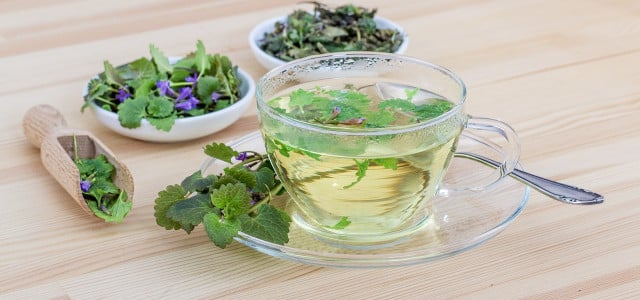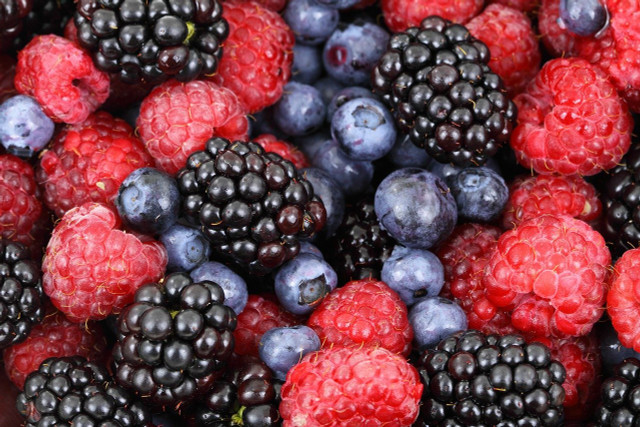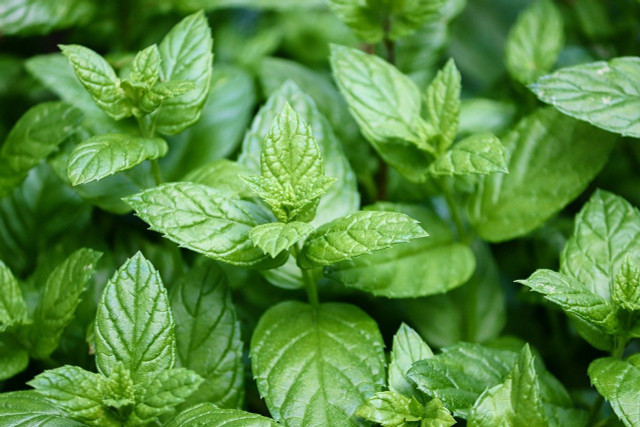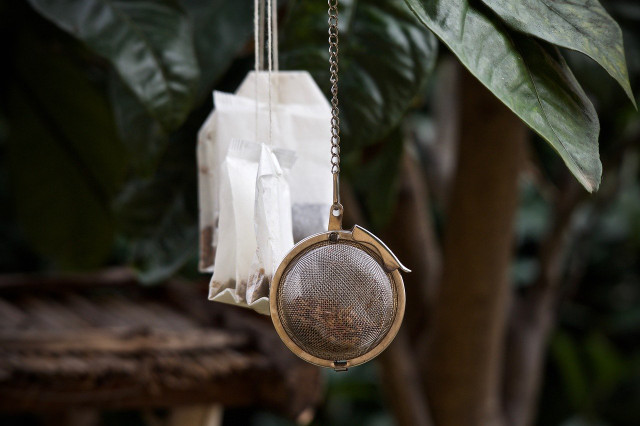
Basic tea can be prepared from different types of herbal teas. We’ll tell you how to use alkaline tea and why you should consume it critically.
Alkaline tea is said to flush acids and pollutants from your body. If tea blends or other foods are described as alkaline, this means that these food products are above 7 on the pH scale and do not form acid, but rather bases. You are therefore eligible for an alkaline diet.
Alkaline tea as part of an alkaline diet

(Photo: CC0 / Pixabay / PublicDomainPictures)
Alkaline tea is drunk to combat the “acidification” of the human body. Supporters of the alkaline diet believe that many people’s acid-base balance is out of balance due to acidic foods, coffee drinks, alcohol and stress. This hyperacidity can trigger various diseases. In order to detoxify the body again, acid-forming foods should be reduced and alkaline-forming foods such as fruit, vegetables or herbs should be increased. Basic recipes therefore contain a lot of healthy ingredients. Alkaline tea is also said to contribute to this.
However, these theories are not scientifically proven and are sometimes dangerous. Alkaline water also has no proven benefits for your well-being. Stiftung Warentest even expresses the suspicion that many companies are primarily interested in selling their nutritional supplements. Ökotest also writes that healthy consumers do not benefit from taking alkaline products. You should therefore first think carefully and critically about alkaline nutrition and food.
Alkaline tea: These varieties are considered alkaline

(Photo: CC0 / Pixabay / manfredrichter)
Basic tea contains various herbal mixtures. These include the following herbs:
- fennel
- Ginger
- peppermint
- rosemary
- sage
- thyme
Some types of herbal tea have been used as medicinal tea since the 5th century BC. Over the last 200 years, herbal tea has been used more and more frequently as a stimulant in addition to its medicinal function. Today, herbal tea can be found in many medicine cabinets. Alkaline teas, i.e. herbal teas, are not prescribed by conventional medicine.
You can also grow herbs for a basic tea at home on your windowsill, in a herb garden on the balcony or in a herb bed. This saves long transport routes and packaging waste. You can also be sure that the herbs were grown organically. Ökotest has discovered harmful ingredients in many herbal teas.
Alkaline tea has these advantages

(Photo: CC0 / Pixabay / sweetlouise)
We agree with Stiftung Warentest and cannot recommend alkaline teas for the purpose of alleged deacidification due to the lack of scientific basis. Nevertheless, alkaline herbal tea mixtures do no harm. Because fluids and drinking enough is very healthy for your body. Furthermore, as you have read above, herbal teas have been used for centuries to help combat minor ailments, for example a cold. If the symptoms don’t go away, you should of course see a doctor.
Read more on Techzle\.com:
- Drink tea – but drink it properly
- Sustainable tea accessories: stylish pots, cups & more
- Verbena tea: home remedies for the stomach and intestines
Edited by Lea Hermann